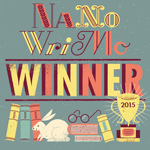This is a pretty difficult class. Not difficult in the sense of understanding religions, because I’ve always held a certain fascination with the faith of a society; how it is created, what drives a people to continue to beleive, and the traditions that come along with it. Personally, I don’t have a religion. I tend to beleive in myself and my abilities, and then humanity. I’m kind of a humanist, though that’s really a label I want to put on what I beleive in. I just don’t really beleive in an uber-super being that keeps an eye on everyone at all times, to which we have to report to at the end of our stay at Bistro Earth. I think it’s a pretty silly notion to have to fear the end due to a bad life. There’s a midterm essay I have to write that’s due in mid-May, but I’ve already been giving it a lot of thought because I beleive I have a lot to say on the subject. In order to get my thoughts out of my head and onto paper, I’ve decided to use my livejournal to do so. (
For the first ten years of my life, I had the special privilege of spending all of my time outside of school with my grandfather. I was the child of a dual-income family, with my mother a schoolteacher in the San Jose Unified School District, and my father a carpenter with his own business to look after. Immediately after school, I would be picked up by my grandfather, and I would do homework, study, play and read under his watchful eye. When my mother was done with her after school activities or my father ceased working for the day, one of them would end up at my grandfather’s home to take my sister and I to our home for the night.
I loved my grandfather very much. I looked up to him and I recall wanting to emulate him, because I was so taken with all of his stories and experiences. He was a retired Staff Sergeant with service in both the Army Air Corps in World War II, and the infant Air Force during the Korean conflict. I used to love to listen to him recount his years in service, and as a very young boy, I remember thinking to myself that military service may be an option to choose when I was of age. He immediately put an end to that aspiration, wanting me to be safe and after that, he stopped glamorizing war. Instead, he began discussing the very graphic nature of war, and finality of death. My aspiration for military service immediately switched to studying the philosophy of warfare, from World War II to the present. I began reading books and studying facts as much as I could. Even today, though my major is Japanese, I have decided to minor in American History, with a specialization on military history.
My grandfather, like the rest of my family, was a devout Roman Catholic. We would all go to church every Sunday, sing songs, receive the Holy Communion, and participate in some activities. When I was seven years old, my entire family was on hand to witness my First Communion, and I remember how proud my grandfather was. It was definitely a milestone in my life, and I look back and feel very grateful that he was able to participate. But it was not for the fact that he was a religious person. In fact, I know that he was very ambivalent about his faith, having switched from Protestant to Catholic in order to marry my grandmother when they were in their early twenties. I looked up to him, though, more so than I did my parents, at that time, because of the amount of quality time we were spending together. My sister and I felt very close to him during those years.
Unfortunately, my grandfather had Diabetes, and toward the last three years of my first decade of my life, his body was beginning to deteriorate at an alarming rate. His vision began to fail him; his toes were losing proper blood circulation, which resulted in amputation. It was not long before his life was mired in pain. Every step he took made him wince, and even at the age of nine, I understood how difficult it was for him to look after us. In order to continue spending time with us, he moved out of his house and began living with us at our home. I switched districts with my sister, instead of going to school near my grandparents; we would attend schools local to my parents’ house, just so we could spend time with him. Looking back, I know he knew his time on this world was coming to an end shortly. I didn’t know that at the time, but remembering all of the small details of his words and actions, I know now he was very aware of his mortality looming before him. The funny part is that he did not care about how close he was, because he lived every single day of his life with his grandchildren to the fullest. Carpe diem, he used to quote to us from time to time. Live like there’s no tomorrow, he would say.
He was right. Eventually, you do run out of tomorrows. On February 2, 1987, my grandfather collapsed from a seizure brought on by cardiac arrest no more than two feet away from me. He was helping me with my homework that afternoon when he seized. At first, I didn’t know what to make of it, being ten years old and just thinking he was being a jokester again: I laughed out loud. He just looked funny to me, and I told him to cut it out. When he didn’t, that was when I really started to think that maybe there was something wrong wit him. It was my sister who cried out first, calling his behavior to the attention of my grandmother. She was in the kitchen, while we were in the dining area. She did not notice his behavior because she was putting groceries away from her recent shopping trip. When he recovered, we shared a prolonged stare. I didn’t know what was going on, and I could feel a bit of panic gripping my chest. He stood up from the table, probably recognizing that look of fear on my face. He waved off my grandmother and went to the bathroom. It was there that he collapsed less than two minutes later, having allowed himself to succumb to arrest, but also taking himself out of view of his grandchildren, not wanting them to have to sit there and watch him die. He knew his time was up.
My faith died that day, along with my grandfather. I know it did, because I held within myself a lot of anger toward God for taking my grandfather away from me. It was an illogical anger, without reason or foundation for its existence, but then religion has no reason to it, either. It’s faith based on parables and morals, morals that require some sort of body or entity by which we live or face consequences. My morality was instilled within me not by faith, but by my grandfather. He never cited commandments or stories from the Bible to get his point across. In fact, most of his anecdotes about morality were taken from his personal experiences, followed by a warning from him about the real world consequences as opposed to the concept of Purgatory or Hell taught to me by a parochial education. If I had to have faith in something or someone, I would rather it be my grandfather than God, because he was tangible and God is not. I feel this way about my faith not because it’s trendy or it seems to be the big rage, but because when I think about the necessity of proving my faith to clergy or other figures of the religion I’m a member of, I have no will whatsoever to do so. If I had faith, I would rather celebrate that on a personal level, not within a large group.
When I think of my faith or lack thereof, I feel a sense of serenity about it. I’ve no need for houses of worship or giving praise to God or a set of gods. My lack of faith is very distressing to the rest of my family, but the truth is that I would rather they be dismayed with the truth than be placated with a false faith. Gene Roddenberry once wrote, “If we’re going to be damned, then let’s be damned for who we really are.” I find that statement to be incredibly appropriate to my life, and the way in which I conduct myself. I know right from wrong, and I think that I have a healthy sense of morality and an individualistic mindset that allows me to respect the beliefs of others without feeling threatened by those ideals. The sheer amount of religions in the world furthers my own belief that choosing one religion over the other serves no other purpose than some sort of a sociological vanity. Catholicism, Judaism, Islam; they’re all facets of belief systems differentiated only by the different requirements. I’ve friends who’re Catholic, Protestant, Eastern Orthodox, Episcopalian, Jewish, Buddhist, and Anglican. Each one chose their faith out of either familial obligations, or because the religion best suited their individual needs.
Do I need faith? I have faith in myself and my fellow man. That seems to serve my needs and fulfills a necessity to believe in something or someone. However, having said that, I still hold within myself a certain fascination for the origin of religion in human civilization. My love for history and the cultures that create history drives me to search for the basic human need to have blind faith in an idea, and fight to the death whenever that idea is threatened by another opposing idea.









2 comments
See?!? I told you you wouldn’t have a problem filling up six pages.
This actually turned out to be just under two pages in Word, but it was lengthed at 1,497 words. Close enough.
— ZC